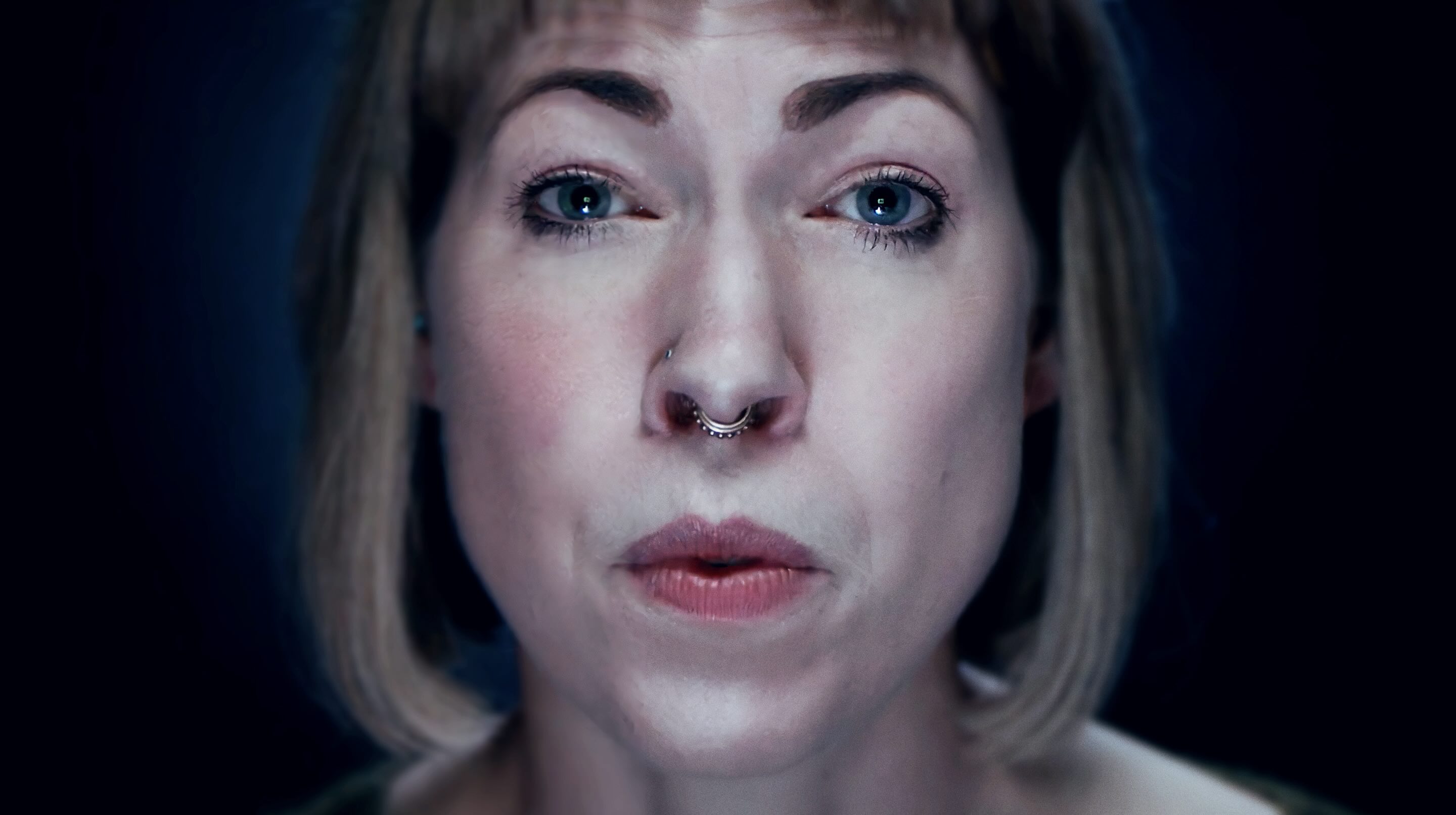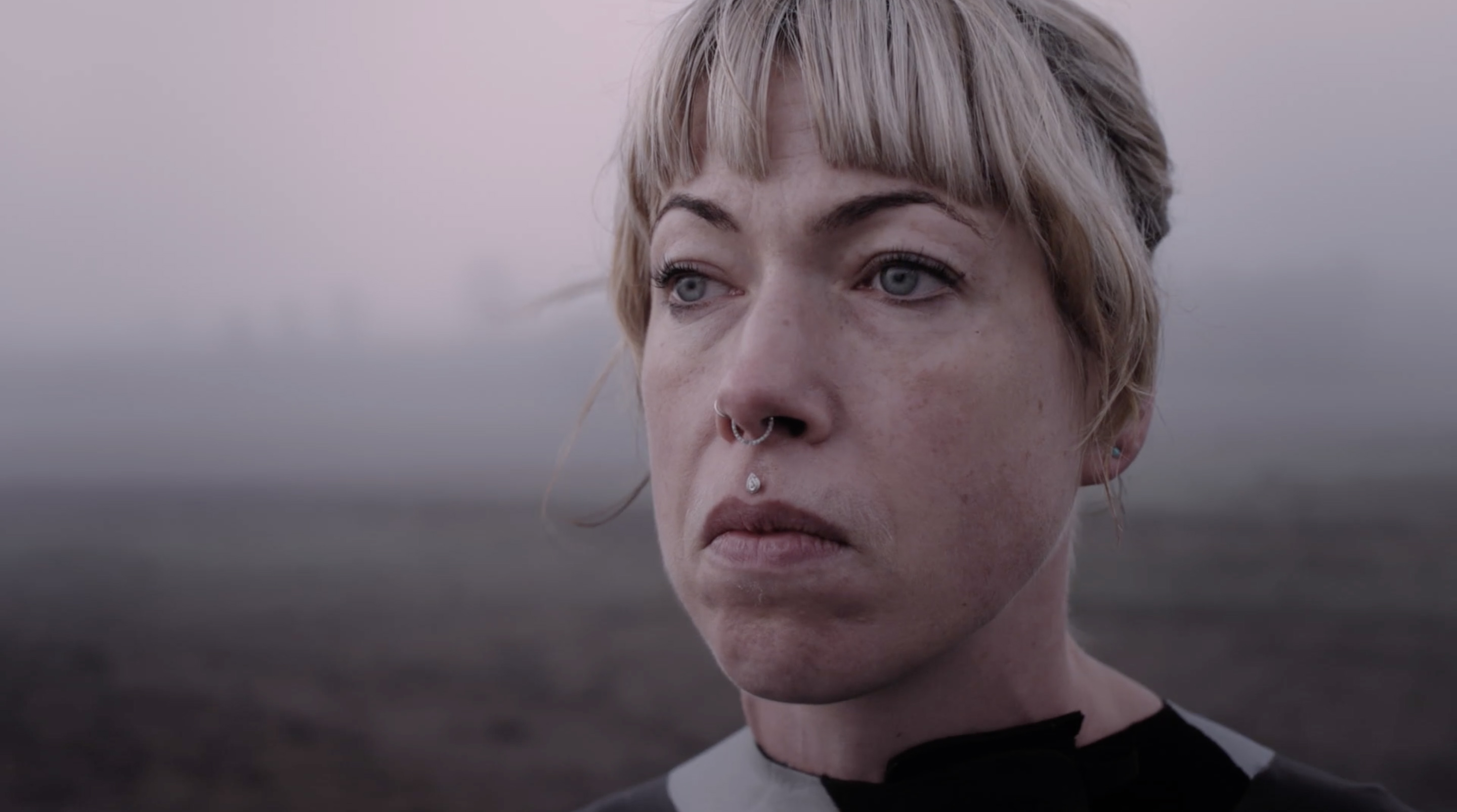The evolution of technology has brought with it a lot of changes to how we live our daily lives, yet the debates continue as to whether these developments have made our life better, or worse. With every positive outcome a negative repercussion never seems far behind. In the case of deepfake technology, the bad seems to far outweigh the good and we get a glimpse into the destructive power this digital manipulation can wreak in Rosie Morris’ Guardian Documentaries short My Blonde GF.
For those of you unfamiliar with the term deepfake, it’s the process of digitally replacing one person’s likeness with that of another and like a lot of technological advancements, its use has gained widespread attention from its employment in the world of pornography. It’s in this arena that the technology, and its impact, are explored in Morris’ insightful yet unnerving film.
How would you feel if you put your computer on one-day only to discover online content where your face had been digitally superimposed onto that of a woman in a sexually explicit, sometimes violent, scenario? This is the situation Helen finds herself in My Blonde GF – a contemporary look at a long-established issue: a culture with a deeply-embedded perception of the female image as public property.

“I wanted [viewers] to see the images through Helen’s eyes, and be in her shoes, to gain an emotional understanding.” – Morris on her production methods.
“I’m interested in the way we live our lives online, how we consume images, and how this impacts female identity”, Morris reveals as she discusses the motivation behind making her short. Explaining that she wanted to make a film that focused on her own age group, who she describes as those who were “around in the early days of Facebook and didn’t really know what we were participating in”. the filmmaker adds that her story took shape during lockdown after she discovered there had been a “huge surge in deepfakes and revenge porn”.
After researching stories involving these particular themes Morris found Helen and was drawn to capturing her experience on-screen because of its wider implications, explaining that she believed it “raises questions of what a fake image is” in relation to the “real impact” it can have on someone’s life. Looking to allow her viewer to “walk alongside Helen” as she struggles to comprehend the complexities behind this discovery, Morris made the decision to never focus on the altered imagery, or its creator, to put the focus instead on Helen’s headspace and how this violation invaded her personal life.

“One day, Helen sent me a video of her wild swimming, and it felt like the furthest you could be from the internet”, Morris discusses the hopeful ending to her short.
That wasn’t the only decision Morris made to ensure her film spoke from her interviewee’s perspective, as the director admits that “all of the creative choices we made for the film are born from conversations we had with Helen about what happened to her and working out how best to show her experience on screen”. Although we never see the images in question, we see the impact they have as we witness Helen viewing the manipulated videos herself. For me, this is more powerful than actually witnessing them firsthand, as we’re forced to truly reckon with the very human face affected by this heinous act.
An important exploration of a contemporary issue set to have a lasting impact on our lives, Morris describes My Blonde GF as “the result of a series of genuine relationships between a group of women who felt strongly that this story needed to be told”. The director was also keen that her film didn’t leave you with the impression that everything is doomed, explaining that they didn’t want to end by saying ”that it’s all fine”, but believe that “Helen speaking out about this is an act of hope in itself”.
My Blonde GF was released online as part of the ever-expanding and ever-excellent award-winning Guardian Documentary series

 Rob Munday
Rob Munday